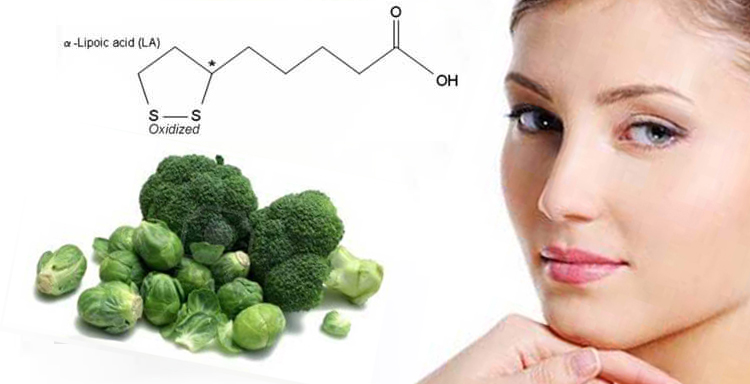Alpha-lipoic acid ALA
Alpha-Lipoic Acid (ALA) synthesized in our body is responsible for activating the enzymes that produce energy from other biologically active elements (nutrients) and energy production from other sources. It is a vitamin-like substance.
read more...The acid particles penetrate our cells and stay there in a free form, functioning like unique antioxidants. The universal nature of ALA lies in its ability to neutralize free radicals in many tissues of our body.
Other capabilities of the acid include imitation of the function of third-party antioxidants, their restoration, and prolongation of the functioning of protective mechanisms.
A few words about ALA
ALA is a fatty acid; it’s synthesized naturally in all body cells and participates in the production of energy, which provides the functioning of the organs and systems. As an antioxidant, the acid actively fights against the negative effect of free radicals.
The ability to function in fatty and water environments is another unique property of the acid. For example, the antioxidants of the vitamins E and C are not capable of that. ALA is considered to let glutathione and the C vitamin function longer.
Alpha-Lipoic Acid helps with weight loss 
ALA allows faster transformation of consumed food into the source of energy for our body: it helps the B vitamins and various ferments. As a result, we get ‘fuel’ for breathing, talking, moving, and vital activities.
This acid makes energy production possible due to its contribution to the breaking down of protein, fats, carbohydrates, and their transformation into ATP.
Antioxidant properties
ALA is an extremely powerful antioxidant with special properties. Its molecular structure differs from that of other antioxidants, which allows ALA to penetrate some organs. For example, the liver, nerve fibers, and brain don’t receive antioxidant protection from other substances, only from Alpha Lipoic Acid, which demonstrates similar activity in water and fatty environments.
Another unique property not present in other substances is the possibility of prolonged use of third-party antioxidants, increasing their lifetime for prolonged body protection.
Free radicals search for a living cell from which they could take missing electrons. Antioxidants give their own electrons to free radicals so that those stop affecting the cells; however, as a result, they themselves become useless. This is the only way to stop the negative action. ALA allows antioxidants to give away not one but several electrons while affecting more radicals.
Alpha-Lipoic Acid for strong body protection
ALA not only protects our body but guarantees its energy security.
The sources from which one can get alpha-lipoic acid include a small number of products: for example, the acid can be found in liver, beer yeast, and spinach. The limited list of the products makes us looks for alternative sources of ALA in form of sports foods.












